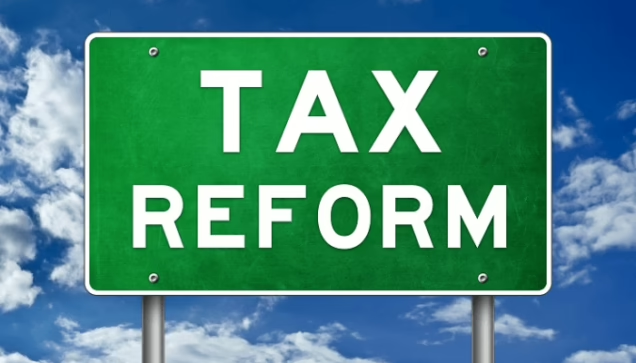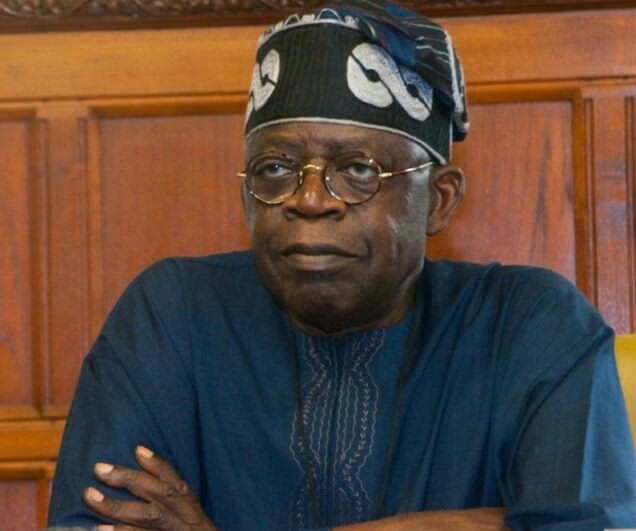Group faults NGF’s VAT sharing formula for states in Tax Reform Bill
Published By: Paul Dada
By Emmanuel Mogbede
A group, the Citizens Network for Peace and Development in Nigeria (NPDN), has faulted the Nigeria Governors’ Forum (NGF)’s VAT sharing formula for states in the proposed Tax Reform Bill.
The group in its communique issued on the proposed bill at the end of its citizen’s engagement on Friday in Abuja, said that the NGF’s formula did not take into account the nation’s productivity and economic growth.
The communique, signed by Chijoke Nwachukwu, Ben-Kalio Adokiye, Dangana Abubakar, Joachim Ikechukwu, Ali Paul and Isa Tiki, was presented by Mr Okorie Raphael, the group’s National Coordinator at a news conference.
“We categorically reject the NGF proposed VAT sharing formula, which allocates 50 per cent based on equity, 30 per cent based on derivation, and 20 per cent based on population.
“This formula does not take into account productivity and economic growth, which are critical factors in determining a state’s contribution to national economy.
“By ignoring productivity, this formula may, inadvertently, penalise states that are making concerted efforts to diversify their economies and promote economic growth,” Raphael said.
He urged the National Assembly to reconsider the proposed bill and adopt a more subtle approach that rewards productivity and economic growth.
The NPDN coordinator said that the bill had the potential to ensure that revenues derived from taxes were channelled into critical sectors, such as education, healthcare, and rural development.
He said that the group was driven by a collective aspiration for equity, justice, and economic progress.
“We gather here today to express our unified position on the tax reform bill currently before the National Assembly.
“We are guided by the principle that a hungry man cannot be patriotic, and therefore, assert that taxation must serve the common good and prioritise the most vulnerable in our society,” he said.
- Tax bills: Tinubu excited by Governors’ endorsement, sends message to National Assembly
- Presidency clarifies stance on tax reform bill rejected by Northern governors
- Northern Governors oppose Tinubu’s Tax Reform Bill, ask NASS to reject it
Raphael said that when enacted into law, the legislation would provide opportunity for a fairer redistribution of wealth and allow government to prioritise the needs of the underprivileged.
“The true measure of any society is how the society treats its most vulnerable members,
“The beauty of the tax reform bill lies with its intent to make richer individuals and entities to contribute proportionally more.
“This will definitely reduce the tax burden on the poor and ensure that funds are available for public services that benefit marginalised communities, ” he said.
He further said that in addition to making the rich pay more taxes, the bill sought to promote equity and fairness.
Raphael described the bill as a proposed game changer designed to ensure that high-income earners and large corporations contributed proportionally to national development.
This, he added, corroborated the assertion that “from whom much is given, much is expected”.
He commended President Bola Tinubu and his economic team for conceiving the idea of the bill, noting that it would reduce poverty and inequality.
He expressed optimism that the bill, if passed into law and implemented with the right focus and fairness, had the potential to be a cornerstone for poverty alleviation and just economic redistribution.
He called on the National Assembly to uphold the pro-poor agenda and urged all stakeholders to prioritise the interests of the common man over parochial interests.
“As law abiding citizens, it is only right to allow the course of lawmaking prevail.
“As such, the public hearing stage of this process is positioned to collate various inputs and enhance the people’s input into decision making that affects them.
“Therefore, those calling for reviews must have a rethink and allow the lawmaking process to commence instead of appearing to scuttle a legitimate democratic process,” he said.
(NAN)











